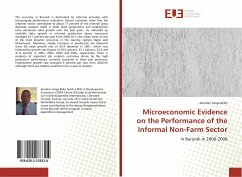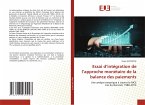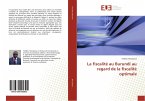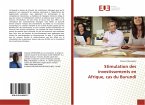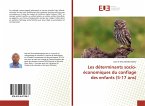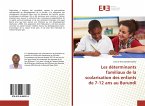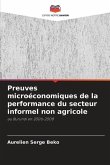The economy in Burundi is dominated by informal activities with encouraging performance indicators. Recent estimates show that the informal sector contributed to about 77 percent of the nominal gross domestic product (GDP) in 2005. Both production1 and employment have witnessed solid growth over the past years. As indicated by available data, growth in informal production (gross turnovers) averaged 44.1 percent per year from 2000-05 in the urban areas of two of the most dynamic provinces in the country, namely Ngozi and Muramvya2. Moreover, steady increases in production are observed since the peak growth rate of 93.9 obtained in 2001, which was followed by growth rate figures of 20.0 percent, 32.1 percent, 32.0 and 41.8 percent in 2002, 2003, 2004 and 2005, respectively. There is evidence of important job creation outcomes driven by the high production performance currently sustained in these two provinces. Employment growth rate averaged 6 percent per year from 2000-05 althoughthere are notable variations from a year to another.
Bitte wählen Sie Ihr Anliegen aus.
Rechnungen
Retourenschein anfordern
Bestellstatus
Storno

